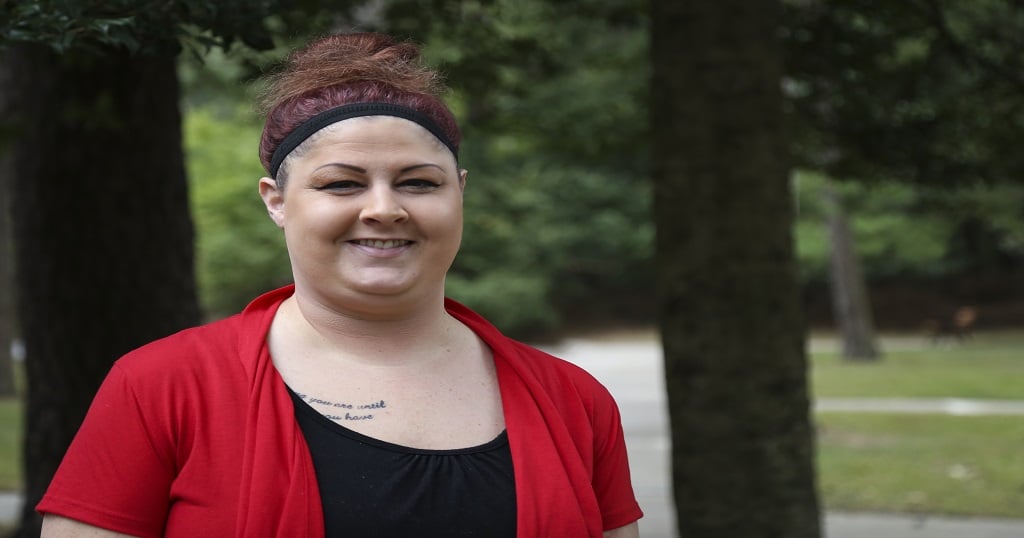
More than just money: Rental program offers stability, confidence

Kelly Miller works with people coming out of prison, helping them find housing, jobs and whatever else they need to be successful as they reintegrate back into society. She knows how hard it can be to find affordable housing. And because she works for a social services nonprofit in New Jersey, she can fully empathize with the challenge of trying to pay rent when you work a low-wage job in one of the most expensive states in the nation. When she learned about Rapid Re-Housing a few months ago, she realized it was a program she desperately needed herself.
“It’s a humbling situation, because I’m in a helping profession, and here I am asking for help myself,” Kelly said. “My clients are telling me: ‘I need housing.’ Well, so do I.”
Rapid Re-Housing is a nationally recognized “Housing First” model that’s intended to help people get housing quickly, become self-sufficient and stay housed. It provides short-term rental assistance and services, funding a renter’s security deposit and first month’s rent, and 70 percent of the second and third months’ rent. At the same time, it requires clients to put that 70 percent into a bank account, as a way to build savings. Meanwhile, staff teach clients budgeting strategies and provide food and furniture assistance as needed. After three months, staff can extend support, if needed, to ensure housing stability.
Catholic Charities, Diocese of Trenton for years has offered Rapid Re-Housing services in Burlington and Mercer County. This year, the agency received state funding to expand Rapid Re-Housing to Ocean County.
Kelly and her 11-year-old son needed housing in a hurry after a family dispute left her homeless in late spring.
Kristine Bodnar, a Catholic Charities housing specialist, was a bit worried when she first heard from Kelly. “We literally had about five days to get Kelly housed,” she said. “And there are a lot of different housing issues that COVID created.”
The federal and state eviction moratoriums put in place early in the pandemic meant that there was little movement in housing, with few vacancies opening up, Bodnar said. While the moratoriums protected financially stressed renters facing eviction, it meant apartment-hunters had a tougher time finding available rentals.
In addition, many rental offices closed during the lockdown – and some remain closed. “So even being able to get a hold of landlords right now is difficult,” Bodnar said.
At the same time, authorities have reported increased rental scams during the pandemic. Scammers lurk in online classifieds like Craigslist and Facebook Marketplace, offering too-good-to-be-true rents to renters whose common sense is clouded by desperation.
In fact, Kelly said she almost fell prey to such a scam before she connected with Catholic Charities.
“They said ‘Oh we’re not doing walk-throughs but you can PayPal me the deposit and we’ll mail you the key,’” she said.
But Kelly got lucky and found an available, affordable unit in the Browns Woods Apartments in Southampton. This is the first time she’s lived on her own and been fully responsible for supporting herself.
“I’m definitely paying more attention to my spending, because before, I was just blowing money like I was rich or something,” she said with a rueful smile.
Her son loves their new home, where kids his age frequently pound on the door to persuade him to go out and play.
“Thankfully I was able to get help from this program, because otherwise, I probably would have been in a shelter. This has definitely been a reality check and helped me realize I have to be more responsible, not only as an adult, but as a parent too, to make sure my son has food and everything he needs,” Kelly said. “I honestly wouldn’t have ever pictured me in my own place like this. It has really helped with my confidence, being on my own.”








